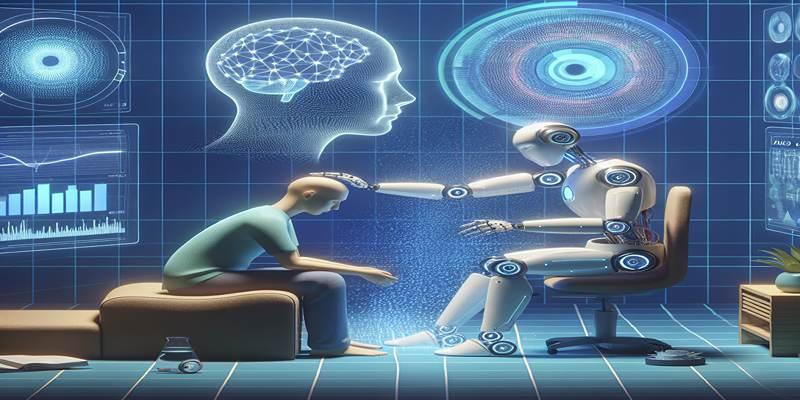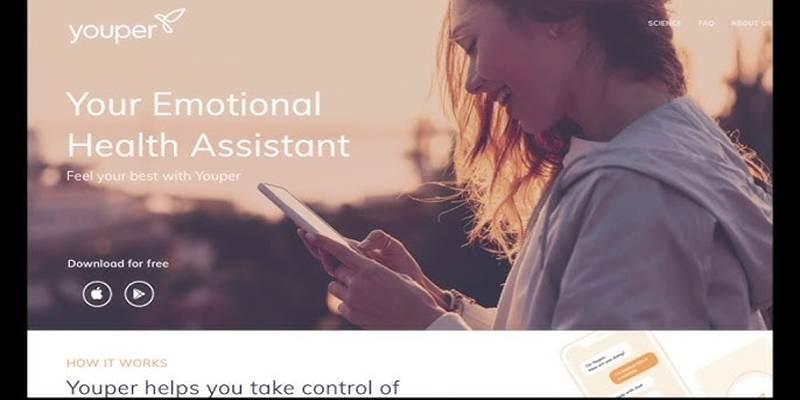The way people get social support is changing as artificial intelligence (AI) is used in mental health programs. Chatbots and mental health apps that are powered by AI are making treatment easier to get, cheaper, and less shameful. With these digital tools, you can get help right away, get guided cognitive behavioral therapy (CBT), keep track of your mood, and get personalized treatments. It makes mental health support more effective than ever.
The rise of digital mental health tools has been driven by increasing mental health awareness and a growing need for immediate support. Traditional therapy can be expensive, and long waiting times often discourage individuals from seeking help. AI-powered chatbots and apps bridge this gap by offering instant assistance, helping users navigate their emotions and improve their mental well-being.
The Rise of AI in Mental Health Care
With the growing demand for mental health support and the shortage of professionals, AI-powered chatbots and apps have emerged as an effective supplement to traditional therapy. These tools provide 24/7 availability, ensuring that individuals can seek help anytime, anywhere. AI-powered platforms analyze text-based conversations to detect emotional distress and offer coping strategies, often reducing the burden on human therapists.
A major advantage of AI in mental health care is its ability to provide continuous support. Unlike human therapists, who have limited availability, AI chatbots and apps can engage users whenever they need assistance. These tools also leverage data analytics to recognize patterns in user behavior, offering personalized guidance based on past interactions.
How AI Chatbots Provide Emotional Support

Mental health chatbots that AI drives are made to have positive talks with users, which can help them deal with worry, anxiety, and sadness. Here are some of the main ways AI apps help with mental support:
- Real-Time Conversations: Chatbots that use AI respond right away, giving users peace and help when they need it the most.
- Guided Therapy: A lot of chatbots use cognitive behavioral therapy (CBT) to help people change their bad thoughts and find better ways to deal with stress.
- Personalized Interaction: By analyzing user inputs, chatbots tailor their responses to individual needs, making support more effective.
- Continuous Monitoring: Many AI-powered chatbots track mood patterns over time, helping users recognize triggers and emotional trends.
- Encouragement and Motivation: AI chatbots can provide daily affirmations and reminders to reinforce positive mental health habits.
- Crisis Intervention: Some AI chatbots detect signs of severe distress and can guide users toward professional help or crisis helplines.
Popular AI Chatbots and Apps for Mental Health
Several AI-powered mental health applications are gaining popularity due to their ability to offer personalized emotional support. Some notable examples include:
Woebot
Woebot is an AI-powered chatbot that provides CBT-based conversations to help users manage anxiety and depression. It offers:
- Engaging, text-based interactions
- Daily mood tracking and self-reflection exercises
- Evidence-based coping strategies
- Personalized insights to improve emotional well-being
Wysa
Wysa is another AI-driven chatbot that focuses on emotional wellness. It includes:
- AI-guided conversations for stress relief
- Meditation and mindfulness exercises
- Professional therapist support is an option
- AI-generated suggestions to improve sleep and relaxation
Replika
Replika serves as a digital companion that engages users in deep and meaningful conversations. Features include:
- Emotional recognition and response adaptation
- Encouragement of self-reflection and mindfulness
- Support for loneliness and social anxiety
- Customizable personality to match user preferences
Youper

Youper uses AI to guide users through conversations that help them manage emotions effectively. It provides:
- AI-driven mood tracking
- CBT-based self-improvement strategies
- Personalized meditation recommendations
- Insights on behavioral patterns and emotional triggers
Tess
Tess is an AI chatbot that provides psychological support by engaging users in text-based conversations. Key features include:
- Real-time emotional support
- Personalized coping strategies
- AI-driven interventions based on user mood
- Integration with therapist-led sessions for comprehensive care
Advantages of AI in Mental Health Support
AI-driven chatbots and apps offer numerous advantages that make mental health care more accessible and effective:
- 24/7 Availability: Users can access mental health support anytime without waiting for appointments.
- Affordability: Many AI-based services are free or cost significantly less than traditional therapy.
- Privacy and Anonymity: Users can seek help without fear of judgment, reducing the stigma surrounding mental health issues.
- Immediate Assistance: AI chatbots provide instant support, helping users during emotional distress.
- Data-Driven Insights: AI tracks user responses and mood patterns, providing valuable insights for better self-awareness.
- Global Reach: AI mental health solutions can be accessed by users worldwide, breaking geographical barriers to mental health support.
- Consistency in Care: Unlike human therapists, AI chatbots provide consistent responses and never experience burnout.
Challenges and Limitations of AI in Mental Health
Despite the numerous benefits, AI-powered mental health support has some limitations:
- Lack of Human Empathy: While AI can simulate empathy, it lacks genuine human emotions and deep understanding.
- Risk of Misdiagnosis: AI chatbots may misinterpret complex emotions, leading to ineffective recommendations.
- Security and Privacy Concerns: Storing and processing sensitive mental health data poses risks if not adequately protected.
- Lack of Crisis Management Skills: AI cannot replace human crisis responders who are trained to handle emergencies and high-risk cases.
- Algorithmic Bias: AI models are trained on datasets that may not be inclusive, leading to biased responses that do not cater to diverse populations.
Conclusion
AI-powered chatbots and mental health apps are revolutionizing emotional support, making mental health care more accessible and affordable. These tools help bridge the gap between professional therapy and self-care, providing users with continuous support and guidance. However, while AI-driven solutions offer many benefits, they should complement, rather than replace, human therapists. By integrating AI with traditional mental health care, we can create a more inclusive, responsive, and effective support system for individuals worldwide.
